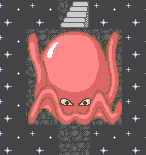#include <fcntl.h>
#include <stdio.h>
#include <string.h>
#include <termios.h>
#include <unistd.h>
#define DSNEG (1 << 4)
#define DSERR (1 << 6)
char *getcode(unsigned char data)
{
const char *list = "0123456789abcdef";
static char code[5];
strcpy(code, "0x??");
code[2] = list[data >> 4];
code[3] = list[data & 0x0f];
return code;
}
int readtemp(int fd, unsigned char *buf, int len)
{
int i, j, n;
int cnt = 0;
buf[0] = 0;
for (i = 1; cnt < len; i++)
{
n = read(fd, buf + cnt, len - cnt);
if (n == 0)
break;
printf("第%d次读取的数据为: ", i);
for (j = 0; j < n; j++)
{
printf("%s", getcode(buf[cnt + j]));
if (j + 1 < n)
putchar(' ');
else
putchar('\n');
}
cnt += n;
}
return cnt;
}
void decode(unsigned char *buf)
{
double temp;
if (buf[1] & DSERR)
{
perror("但温度数据有误!\n");
return;
}
temp = buf[2] * 1.00 + buf[3] * 0.01;
if (buf[1] & DSNEG)
temp = -temp;
printf("温度值为: %.2lf\n", temp);
}
int main(void)
{
unsigned char buf[4] = {0x83};
int fd, n;
struct termios t;
fd = open("/dev/ttyUSB0", O_RDWR);
if (fd == -1)
{
perror("打开串口失败!\n");
return 0;
}
if (tcgetattr(fd, &t) == 0)
{
write(fd, buf, 1);
n = readtemp(fd, buf, sizeof(buf));
if (n != sizeof(buf))
printf("传回的数据不完整,只读取了%d字节!\n", n);
else if (buf[0] == 0x83)
{
printf("读取温度值成功!\n");
decode(buf);
}
else
printf("读取温度值失败, 错误码: %s\n", getcode(buf[0]));
}
else
perror("获取串口默认配置失败!\n");
close(fd);
return 0;
}


